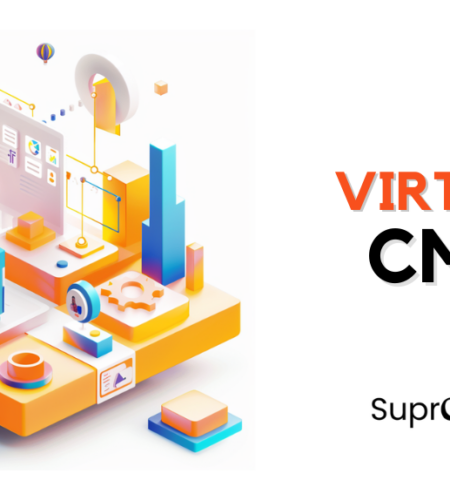
In the fast-paced and ever-evolving media world, staying ahead of the curve is essential for success. With constant shifts in consumer behavior, emerging technologies, and industry trends, media companies must adapt their strategies to remain relevant and competitive.
You are introducing the Virtual Chief Marketing Officer (CMO)—your strategic partner in navigating the complexities of media marketing. This guide explores how a Virtual CMO can revolutionize your media company’s marketing efforts, drive audience engagement, and maximize revenue generation.
From crafting compelling content strategies to leveraging digital platforms for distribution and monetization, a Virtual CMO brings expertise and strategic vision to help your media company thrive in today’s dynamic landscape. Join us as we embark on a journey to elevate your media company’s marketing strategy and unlock new opportunities for growth and success.
Benefits of Hiring a Virtual CMO for Your Media Company in 2024
Hiring a Virtual CMO for your media company in 2024 can provide numerous benefits, including:
Expert Marketing Leadership: Virtual CMOs bring extensive marketing experience and knowledge, offering strategic guidance to improve audience engagement, revenue growth, and brand reputation.
Cost-Effective Solution: Engaging a Virtual CMO is more cost-effective than hiring a full-time marketing executive, allowing you to allocate resources to other critical areas of your media business.
Enhanced Digital Presence: A Virtual CMO can optimize your website, improve search engine rankings, and develop a solid social media strategy to increase online visibility and attract more viewers.
Targeted Content Marketing: By creating and promoting valuable content that resonates with your target audience, a Virtual CMO can help you engage and retain viewers more effectively.
Brand Reputation Management: A Virtual CMO can help you build and maintain a robust and positive brand reputation, differentiate your media company from competitors, and foster trust among viewers, advertisers, and partners.
The Role of a Virtual CMO in Transforming Media Companies: A Deep Dive
In the fast-paced, ever-evolving world of media, adaptation isn’t just a necessity—it’s the key to survival. As consumer preferences shift, technological advancements disrupt traditional models, and new competitors emerge, media companies must continuously innovate to stay relevant and competitive.
Enter the Virtual Chief Marketing Officer (CMO)—a strategic partner poised to drive transformation and propel media companies to new heights of success. In this deep dive, we’ll explore the multifaceted role of a Virtual CMO in revolutionizing marketing practices, fostering innovation, and unlocking growth opportunities for media companies.
Strategic Vision and Leadership
Strategic vision and leadership are at the core of the Virtual CMO’s role. Drawing upon extensive experience and industry insights, they collaborate closely with media company executives to develop and execute marketing strategies aligned with overarching business objectives. From brand positioning to audience segmentation, their strategic guidance steers the company towards sustainable growth and competitive differentiation.
Audience Engagement and Content Strategy
In today’s digital landscape, capturing and retaining audience attention is paramount. A Virtual CMO leverages data-driven insights and market research to understand audience preferences, behaviors, and content consumption patterns. With this knowledge, they craft tailored content strategies that resonate with target audiences across various platforms and formats, driving engagement, loyalty, and revenue generation.
Digital Transformation and Innovation
The advent of digital technologies has revolutionized the media industry, presenting both challenges and opportunities. A Virtual CMO leads the charge in embracing digital transformation, leveraging emerging technologies, and exploring innovative distribution channels to reach audiences wherever they may be. Whether investing in immersive experiences, harnessing the power of data analytics, or experimenting with new revenue models, they drive innovation to stay ahead of the curve.
Monetization and Revenue Optimization
Optimizing monetization strategies is essential for media companies’ financial sustainability in an era of evolving business models and revenue diversification. A Virtual CMO develops and implements revenue-generation initiatives, from advertising and subscription models to sponsored content and e-commerce integrations. Identifying new revenue streams and maximizing existing ones drive profitability and ensure long-term viability.
Brand Building and Differentiation
Building a solid brand identity and establishing differentiation is critical for standing out amidst the noise in a crowded media landscape. A Virtual CMO develops and executes brand-building strategies that resonate with audiences, convey value propositions, and foster emotional connections. Through consistent messaging, storytelling, and visual identity, they position the media company as a trusted authority and preferred destination for content consumption.
Top Strategies Virtual CMOs Are Implementing in Media Companies Today
Virtual CMOs are playing an increasingly important role in shaping the marketing strategies of media companies. Here are some of the top strategies they are implementing today:
Omnichannel Marketing: Virtual CMOs focus on creating seamless experiences across various channels, such as social media, email, search, and display, to reach a wider audience and drive engagement.
Personalization: By leveraging data and analytics, Virtual CMOs create personalized marketing campaigns catering to individual preferences, leading to higher engagement and customer loyalty.
Content Marketing: Virtual CMOs are prioritizing the creation of high-quality, engaging content to attract and retain viewers and establish the media company as an authoritative voice in the industry.
Social Media Optimization: Social media plays a critical role in media consumption, so Virtual CMOs are optimizing their social media strategies to build brand awareness, drive engagement, and foster a robust online community.
Data-Driven Decision Making: Virtual CMOs utilize data and analytics to make informed marketing decisions, optimize campaigns, and measure ROI more effectively.
By implementing these strategies, Virtual CMOs are helping media companies stay ahead of the competition, adapt to changing consumer preferences, and achieve sustainable growth in a rapidly evolving industry.
Virtual CMO vs Traditional CMO: Which Is Right for Your Media Company?
Effective marketing leadership is paramount for media companies seeking to thrive in a competitive market environment in an ever-evolving media landscape characterized by digital disruption, shifting consumer behaviors, and emerging technologies. As media companies navigate the complexities of modern marketing, they are faced with a critical decision: should they opt for a traditional, in-house Chief Marketing Officer (CMO) or explore the advantages of a virtual CMO model?
This comprehensive guide delves into the critical distinctions between a Virtual CMO and a Traditional CMO, empowering media companies to make informed decisions that align with their unique needs, objectives, and growth trajectories in the dynamic media industry.
Understanding the Contrasts:
Engagement Model: A Traditional CMO typically operates as a full-time, in-house executive deeply embedded within the organization’s structure and culture. In contrast, a Virtual CMO offers a more flexible arrangement, providing strategic guidance and expertise on a part-time or consultancy basis tailored to the media company’s specific needs and budget.
Resource Allocation: Hiring a Traditional CMO involves significant overhead costs, including salary, benefits, office space, and resources. Conversely, engaging a Virtual CMO offers a cost-effective solution, with fees structured according to the scope of services required, without the burden of long-term commitments or overhead expenses.
Depth of Expertise: While both Traditional and Virtual CMOs bring expertise in marketing strategy and execution, a Virtual CMO often offers a diverse skill set honed through experience with multiple clients and industries. This breadth of knowledge enables them to provide fresh perspectives, innovative strategies, and best practices gleaned from cross-industry insights.
Flexibility and Agility: In today’s rapidly changing media landscape, agility and adaptability are essential for staying ahead of the curve. A Virtual CMO provides the flexibility to scale services up or down based on evolving needs, market conditions, and growth trajectories, enabling media companies to respond quickly to emerging opportunities and challenges.
Access to Talent: Engaging a Virtual CMO grants media companies access to a broader talent pool unrestricted by geographic boundaries. This allows companies to tap into specialized expertise and niche skill sets that may not be readily available in their local market, thereby enhancing the quality and effectiveness of their marketing initiatives.
Choosing the Right Path:
As media companies weigh the benefits and considerations associated with both Virtual and Traditional CMO models, evaluating factors such as organizational structure, budgetary constraints, growth objectives, and desired level of flexibility is essential. By carefully assessing these factors and understanding the distinct advantages of each approach, media companies can make a strategic decision that positions them for success in the competitive landscape of modern media.
In the subsequent sections, we’ll delve deeper into the benefits, challenges, and considerations associated with both Virtual and Traditional CMOs, equipping media companies with the insights they need to make the best choice for their marketing leadership needs.
How a Virtual CMO Can Drive Revenue Growth for Media Companies in 2024
In the rapidly evolving media landscape, revenue growth isn’t just a goal—it’s a necessity for survival. With shifting consumer behaviors, emerging technologies, and changing business models, media companies must adopt innovative strategies to monetize content effectively and maximize revenue streams.
Enter the Virtual Chief Marketing Officer (CMO)—a strategic partner uniquely positioned to drive revenue growth and profitability for media companies in 2024. This guide explores how a Virtual CMO can leverage their expertise, insights, and digital acumen to unlock new opportunities and propel your media company to financial success.
The Future of Marketing: Virtual CMOs and Their Impact on Media
The marketing landscape is undergoing a profound transformation in an era marked by rapid technological advancements, shifting consumer behaviors, and evolving media consumption patterns. As media companies navigate the complexities of this dynamic environment, they are increasingly turning to innovative solutions to stay ahead of the curve and drive sustainable growth.
At the forefront of this evolution are Virtual Chief Marketing Officers (vCMOs) – seasoned marketing professionals who offer strategic guidance, expertise, and flexibility to media companies seeking to navigate the ever-changing marketing landscape. In exploring the future of marketing, we delve into the rise of vCMOs and examine their transformative impact on the media industry.
Maximizing ROI: Implementing a Virtual CMO Strategy for Media Companies
In the dynamic world of media, where every decision can impact the bottom line, maximizing return on investment (ROI) is paramount. From content creation to audience engagement and revenue generation, every media company’s operations must be optimized to ensure profitability and long-term success.
Enter the Virtual Chief Marketing Officer (CMO)—a strategic partner uniquely equipped to drive ROI and unlock new opportunities for media companies. In this guide, we’ll explore how implementing a Virtual CMO strategy can revolutionize marketing practices, streamline operations, and maximize ROI for media companies.
From leveraging data-driven insights to developing innovative monetization strategies, a Virtual CMO brings expertise and strategic vision to help media companies achieve their financial objectives. Join us as we delve into the transformative power of a Virtual CMO strategy and its potential to drive sustainable growth and profitability in the media industry.
Conclusion:
Engaging a Virtual CMO for media companies can significantly enhance their marketing strategies and overall business growth. Virtual CMOs bring extensive experience in digital marketing, branding, and audience engagement, offering customized solutions to meet the unique needs of media companies.
By partnering with a Virtual CMO, media companies can improve their online presence, target specific audiences through content marketing, optimize marketing campaigns, and build a robust and reputable brand. Additionally, Virtual CMOs can help media companies navigate emerging trends, such as the shift toward streaming services and personalized content.
Email: [email protected]


Comments